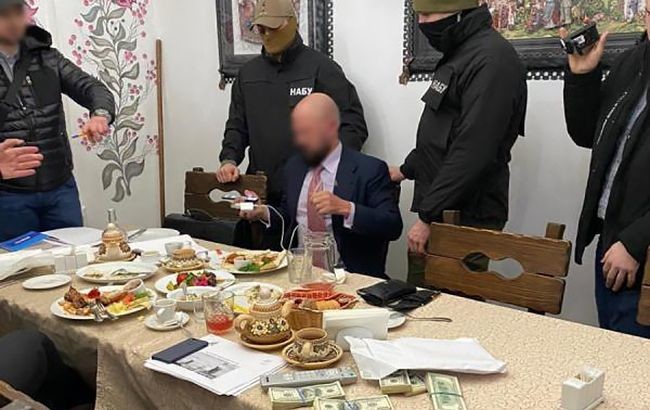Case description
On May 28, 2020, the HACC found Serhii Shcherbak guilty of an attempt to bribe Sennychenko, the then head of the State Property Fund, together with other persons. The accused received 5 years of suspended imprisonment with a probationary period of 3 years.
Serhii Shcherbak is a politician who twice unsuccessfully ran for the Verkhovna Rada, in 1998 and 2007. At the end of 2019, he, together with Valerii Trots and Vitalii Kolesnikov, offered ex-head of the SPFU Dmytro Sennychenko USD 5 mln in bribes in exchange for the appointment of a certain person as the director of the Odesa Portside Plant (almost 100% owned by the state). The new head would have to facilitate the conclusion of contracts between the Plant and private companies associated with the persons involved in this crime.
In January 2020, NABU detectives caught all three of them red-handed in the restaurant during the transfer of the first tranche of USD 50,000. The whistleblower of these corruption crimes was actually the then head of the SPFU Sennychenko. By the way, this was the first attempt to bribe Sennychenko; later, there will be two more, and the ex-head of the SPFU himself will be tried in court.

The court qualified the crime of Shcherbak under Article 369, part 4 of the Criminal Code of Ukraine. The accused concluded an agreement with the prosecutor and fully admitted his guilt in corruption crimes. The court sentenced him to 5 years of probation on the basis of an agreement with the prosecutor.
Later, in June 2020, one of the accomplices in the crime filed an appeal, in which he asked to overturn the verdict of the first instance of the court against Shcherbak. He justified it by the fact that the verdict contained a lie about his actions and he could be identified despite the fact that his last name was not indicated. In addition, he stated that the court allegedly could not exempt Shcherbak from serving his sentence because the crime was corruption-related.
Both the prosecutor and Shcherbak himself disagreed with these arguments; the HACC Appeals Chamber eventually decided that the accomplice did not have the right to appeal this decision at all, so the appeal proceedings were closed.




